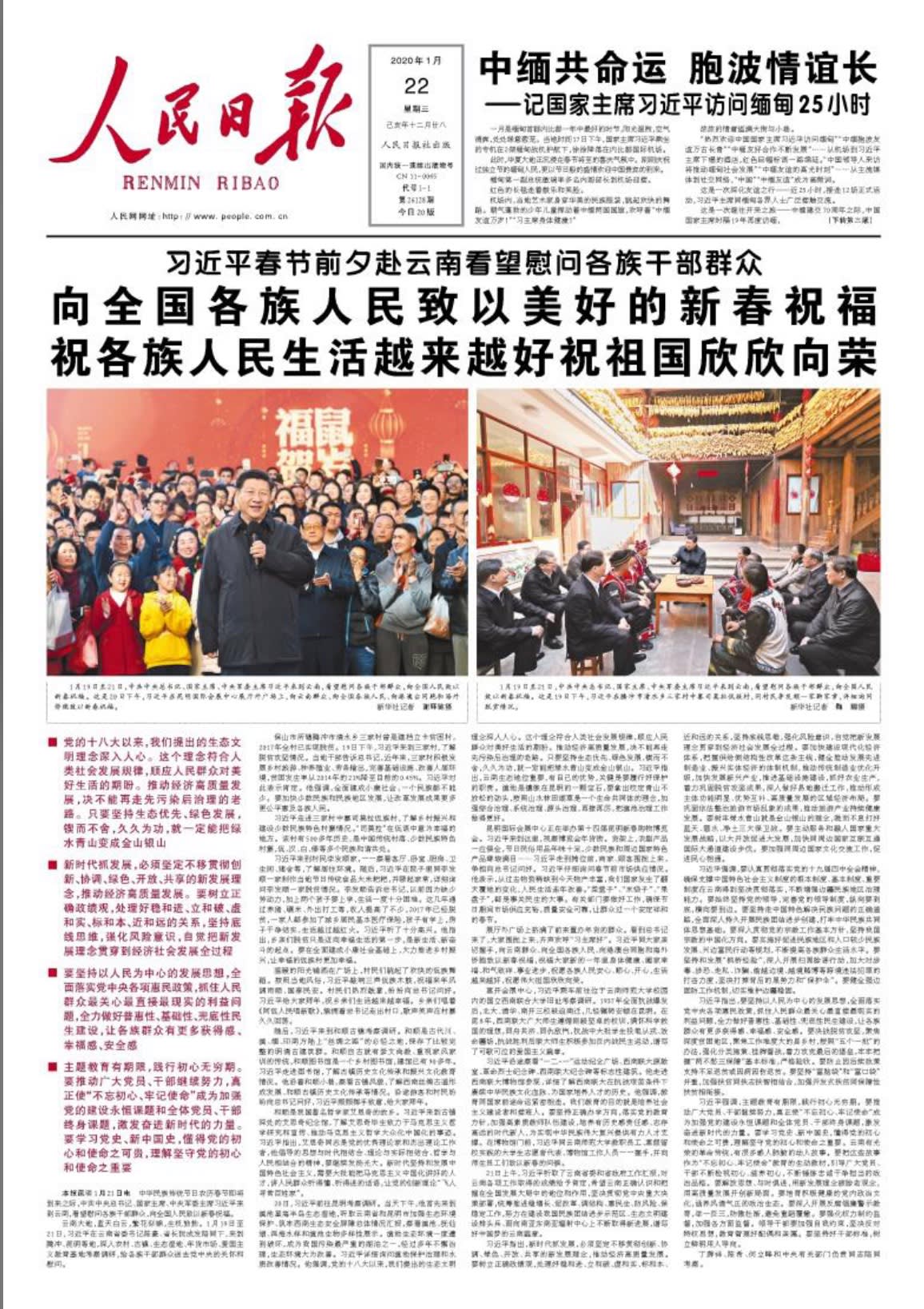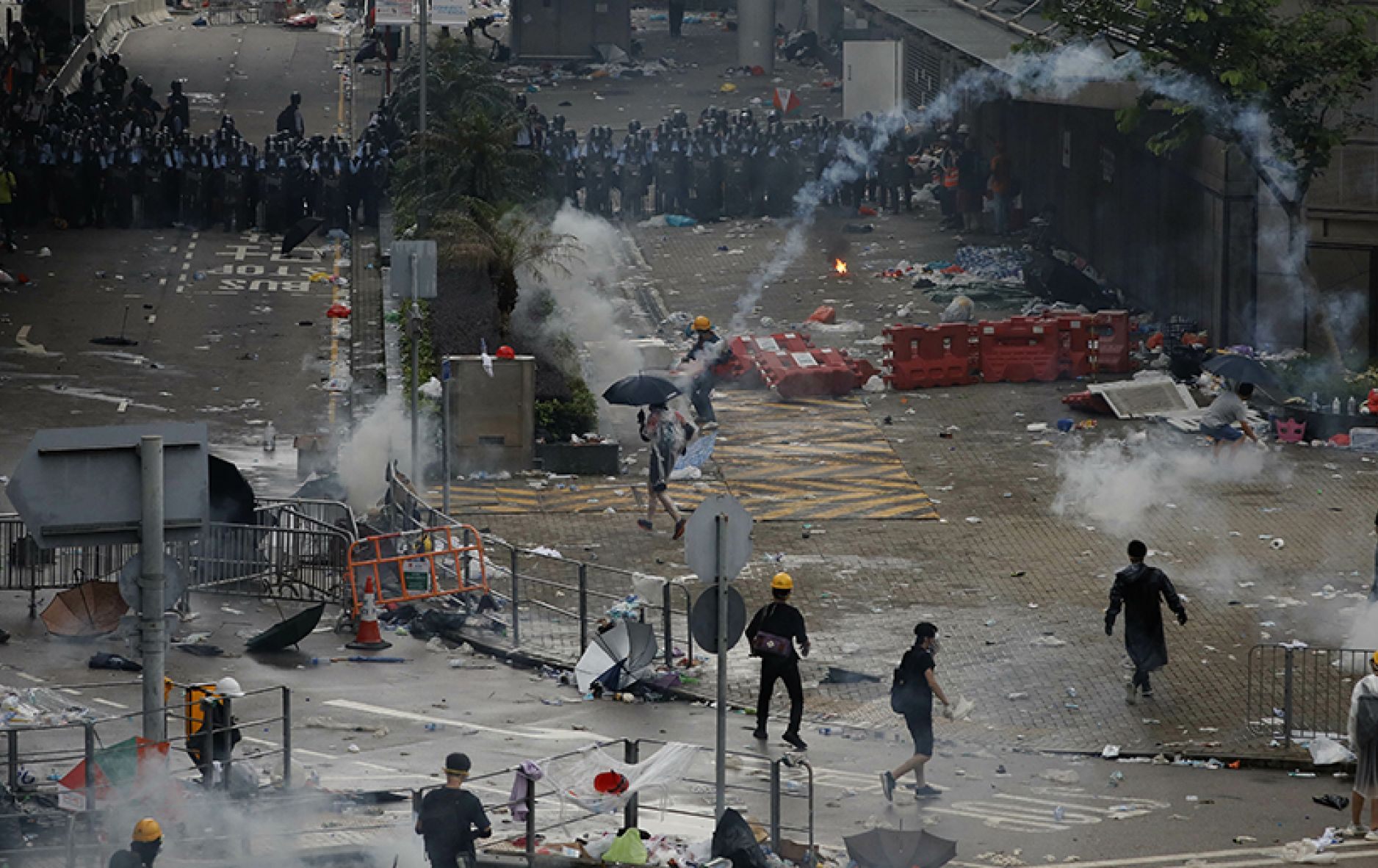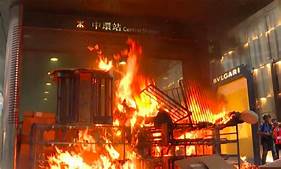“Abandon all hope” is how I titled a recent post on the response of Wuhan people to the virus. The title was based on the stories I was hearing, both live and through wechat groups.
Now, this is the language Chinese are themselves using to describe their situation. When people lose hope, they lose sense of moral responsibility. Now, there are stories of people in hospitals attacking doctors, ripping their gowns and facemasks, not to use themselves. It is what one can do when nothing matters anymore. “If I am going to die, you will die with me.” From the London Daily Mail, video of the crowd in hospital corridors – https://www.dailymail.co.uk/news/article-7921709/Shocking-footage-shows-hospital-China-flooded-hundreds-patients-amid-coronavirus-outbreak.html#v-6237968338604408872
There are stories of delivery boys, delivering food to communities (since residents cannot go out or are too afraid to go out), and residents tear the face mask from the boy and spit in his face, to transfer the virus.
In the historical face of privation, corruption, and venality, many Chinese maintain a stoicism about leaders – leaders are doing the best they can, we must think of the pressure they are under. A good deal of that allowance for error seems to be ended now. A friend of a friend, whose demeanor was always described as genial and submissive, now has called for leaders to be killed. Li Keqiang came to Wuhan a few days ago, ostensibly to encourage locals to keep up the good fight. Li went to the site of the new field hospitals being built in Wuhan, but – per my wechat posts – did not go to any of the hospitals where hundreds still stand in line, doctors and nurses lack masks and gowns, people seeking care get shuffled from hospital to hospital with no available transportation (taxis shut down or refuse to take patients, private cars not available, buses shut down). Leaders, even national leaders, are now described as animals. They have no concern for ordinary Chinese. Even now, the mayor and governor have to read from a script to express their sympathies. They are most certainly not of the people, nor are they serving them.
Most of this information is coming to me through wechat groups. I have no first hand knowledge – which in China would not qualify me to say anything at all (no one should comment on anything without knowing all the facts). But the people doing these posts are friends of mine who are smart, thoughtful, generally loyal, and most certainly not given to extremes in typing. These friends now have some family members who are sick, some friends who have died. The circle enlarges even as it closes in.
Per their posts – the virus was identified by the Wuhan Center for Disease Control in early to mid-December. This government body is a branch of the national CDC, and the Wuhan people report only to the central government CDC. The Wuhan mayor, the Hubei governor, the party leaders were not part of the chain of authority at that point. The central government CDC took the samples and data, analyzed it, and the researchers were able to write eight journal articles, submitted to top medical journals in China and one in Britain, before the end of the year. By doing so, the scientists would gain prestige, promotions, and money. It is an extreme sign of systemic corruption that scientists compete for salary raises by publishing, and in so doing ignore the people whom they are supposed to serve. It is reported that the head of the central government CDC is not a medical doctor, but a veterinarian – such is the meritocracy within CCP. The Wuhan leaders were not informed of the virus, or its spread, until the middle of January, several weeks to a month after the virus was identified in Beijing. That may be a reason that the Hubei and Wuhan leaders have not been asked to resign – perhaps they truly did not know.
You have seen the Wuhan pictures with no one on the streets. People are holed up in their apartments, either sick, taking care of someone who is sick, or afraid to go out. People will have no contact with each other. Many are isolated, alone, some sick. Some food deliveries get made, but boxes are left outside a door. Some wealthy people have tried to stay in hotels, in Wuhan or elsewhere, but the hotels will not take them if they are from Hubei. Some people have stopped wearing masks, even if they are sick, out of despair. One contact reports being at home, and the only vehicles he sees, day after day, are ambulances and funeral cars, come to take bodies. Many sicknesses and deaths are not reported as virus related, because the final diagnosis was never made. Human contact is dangerous. This is The Plague. Read the plot summary, if you don’t remember details of the book.
Medical personnel are breaking down. In many cases, they cannot go home, they cannot leave the hospital. They are targets even as they try to save lives.
The Chinese Red Cross has come in for harsh analysis. You remember the photo from 2011 of guo meimei, identified as the general manager of the Chinese Red Cross. She was lounging in front of her very expensive sports car, dressed quite stylishly. Since then, many Chinese do not want to donate money to the Red Cross, and that continues even today.
http://www.cnn.com/2011/WORLD/asiapcf/07/06/china.redcross/index.html
Lots of donations are going to a charity run by Han Hong, a famous singer who donates much of her income to social causes in China. She is trusted, when so much of the government is not.
While the World Health Organization (WHO) has praised China for learning so much from the SARS epidemic in Beijing in 2003, Wuhan people don’t see the learning. They say Hu Jintao would not have allowed such delay and suffering. Now, all officials are afraid of Xi Jinping, no one will report outside of their strict authority, and media, once beginning to open to criticism and analysis, is shut down. Mr. Xi reminded all media several years ago that they work for him.
WHO has finally declared the coronavirus a world health emergency. WHO praised China for its prompt response in providing information to WHO – in mid-December – of the identity of the virus. WHO has seemed reluctant to make this declaration, perhaps out of fear of offending China, despite the deplorable lack of response within China that has allowed the virus to spread so far and so fast. This international and irrational fear of “hurting the feelings of the Chinese people,” as CCP so often proclaims, must cease. When the tide goes out, as they say, we see who is swimming naked. The government has left the Chinese people naked and cold, and sick and dying. The truth will out – not always, and not always very fast. But here we see power in its Lord Acton transform. Mr. Xi has been proclaimed personally the core of CCP, and CCP must lead every industry, every aspect of Chinese life. He has absolute power. It is as if loyal Party members must proclaim, we have no king but Caesar.
In Chinese dynastic mythology, a natural disaster foretells the fall of a dynasty. Heaven is not pleased with performance, and Heaven hears as the people hear, sees as the people see. Xi Jinping has amassed more power than any leader since Mao. He has personalized power, centralized, and put himself and CCP at the core of all in Chinese society. Now, Mr. Xi should be worried. Lord Acton and Heaven must be in his mind, because even Mr. Xi knows that pride goeth before a fall, and the coronavirus can infect even those who never get sick.


 Source: fox news
Source: fox news  Source: RTHK, Asia Times
Source: RTHK, Asia Times

Masks of the Red (Cross) Death
You remember the Edgar Allan Poe story – The Masque of the Red Death
Prospero and 1,000 other nobles have taken refuge in this walled abbey to escape the Red Death, a terrible plague with gruesome symptoms that has swept over the land. Victims are overcome by “sharp pains”, “sudden dizziness”, and “profuse bleeding at the pores“, and die within half an hour. Prospero and his court are indifferent to the sufferings of the population at large; they intend to await the end of the plague in luxury and safety behind the walls of their secure refuge, having welded the doors shut.
As noted yesterday, the Chinese Red Cross has come in for some special attention in social media. Per reports, the Chinese Red Cross has collected millions of dollars in cash and equipment to assist in the coronavirus campaign. The money should be used to buy supplies for hospitals. The supplies should get to hospitals without delay. As you know, masks, gowns, hazardous clothing and medicines have been in desperately short supply throughout Hubei. But in keeping with suspicions of the last decade, the Chinese Red Cross has not been forthcoming in its accounting for donations and particularly in its distribution of needed supplies to hospitals.
The Red Cross Society of China is not affiliated with the International Red Cross. It has experienced heavy criticism, and donations have dwindled, since exposes related to the 2013 Sichuan earthquake relief and a 2011 scandal involving a woman flaunting her fabulous car, clothes, and lifestyle who also claimed to be a Red Cross director. The Atlantic has a brief review of the problems, from 2013. It appears that danwei donations, some government employee donations, and even student donations, were required to go to the Chinese Red Cross, rather than another non-profit. Many Chinese openly question whether the Red Cross leaders divert money for their own purposes.
That was then, and this is 2020. Bureaucratic delays can happen in any situation. Certainly, supplies should be accounted for. But it appears that logistics for distribution of masks and gowns has gone seriously wrong, with no improvement over past operations.
Many tons of supplies have been collected from throughout China and even from overseas packages of masks and gowns. The Red Cross initially said it would send supplies directly to hospitals. When the Red Cross only sent two trucks to deliver tons and tons of supplies throughout Wuhan – a city the size of all of northeastern Illinois – the bottleneck was obvious – and potentially deadly. When the hospitals complained, the Red Cross told the hospitals to come pick up supplies themselves. The hospitals were happy to dispatch people to do so.
When the dispatch people arrived at Red Cross headquarters, they still could not pick up supplies, because the Red Cross wasn’t ready. Hospital staff were told to come back the next day – while supplies sat in the warehouse behind them.
They still could not get supplies the next day, because the Red Cross demanded that hospitals produce a sort of introduction letter in order to obtain supplies. This appears to be a sort of holdover from 30 years ago, when each danwei had to produce evidence of need and appropriate guanxi to get supplies without exchange of cash.
At the top level hospital in Wuhan, doctors and nurses resorted to making their own masks from plastic bags and filter paper, and soliciting donations directly from the public instead of going through the government-approved Red Cross. As punishment, this leading hospital received supplies of only 3,000 masks from the Red Cross.
A hospital that received 15,000 or 16,000 masks is not a hospital at all, but a private fertility clinic, with no fever department at all. Managers of the clinic said they were donating the masks to people in the neighborhood, rather than the supplies going to the hospitals. One questions whether the masks were given away or sold. There is a related post at u/cheesyramennoddle on reddit, with different numbers.
Dozens of Chinese volunteered to help the Red Cross in distribution of supplies. The wechat stories are about volunteers who stopped showing up, because of the inability of the Red Cross to make any effective use of their time.
For donors looking to donate supplies directly, the Red Cross is charging donors a 6 to 8 percent cash fee to take the donations. Management of the work has a cost, and non-profits need to get those funds somewhere. Still, it seems a bit … unseemly to charge donors for making a donation.
There are other avenues for donations of supplies. The Chinese Charity Federation ci shan zhong wei is a nationwide organization for receipt of donations. There are provincial and city branches all over China.
An overseas hai wai Chinese tells the story of attempting to donate masks, gowns, gloves, and goggles to Hubei, or Wuhan, or directly to the hospitals through the Charity Federation. Over the span of about a week, he had to obtain about a dozen different forms for import of the goods, including a manufacturing license agreement MLA, a registration certificate for medical devices, and a report for detecting and analyzing – test report (sort of an FDA report) – these in addition to the normal import forms – logistics company receipts, name of a recipient at the hospital, name of the exporting company (there was no company, only an individual). One probably can’t expect the Charity Federation to be up to speed on emergency donations from abroad, but his story tells of the disdain that local organizations seemed to have for an attempt to donate necessary emergency supplies. As in always the case in China, no one would volunteer to tell him what other forms might also be needed – in any case, it was likely that no one knew. He finally had to resort to using very special guanxi from Beijing to get approvals for import. In the meantime, the Beijing, Hubei, and Wuhan branches of the Charity Federation were passing the buck among each other over whose stamp should be on the goods in order to receive them. In addition, the provincial and city health bureaus were also demanding stamps before goods could be shipped from Shanghai port. The Chinese donor in America finally did get his donations released and shipped, but there was quite clearly no emergency on the receiving end. His comment was that it would be easier to ship illegal drugs into China than emergency medical supplies.
Some supplies from abroad did get in before air flights were shut down. Six deliveries from Japan, South Korea, and Britain did get through. According to my information, that included 4.82 million yuan worth of goods – 691,000 masks, 106,000 gowns, 50,700 pair of gloves, and 5000 pairs of protection goggles.
The Red Cross logistics bottleneck has been the source of many angry postings from Chinese online. A CCTV journalist went to interview people at the Red Cross, but was turned away. At the same time, hospital staff were waiting in line with their introduction letters to get supplies from the Red Cross warehouse. In the parking lot, leaving the Red Cross warehouse, the journalist watched a driver with a Wuhan government license plate go into the warehouse and emerge with boxes of masks. “For the leaders,” is what he told the journalist and the waiting hospital staff. Masks of the Red (Cross) death, indeed.
There is plenty of dishonor to go around in this crisis, but one sort of expects the Red Cross, even the Chinese government-affiliated Red Cross, to operate at a somewhat higher plane. That is not the on-the-ground experience right now. The Charity Federation does not emerge looking any better. The government officials do have their masks, though, so perhaps the emergency is really over.